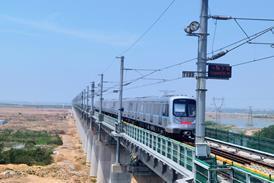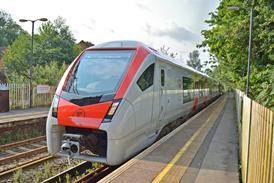’ALL INDIVIDUALS need accessibility to employment, education and recreation. Achieving environmentally-sustainable mobility must include an expanded role for public transport, and requires many kinds of action. Well-managed, well-utilised public transport will make a major contribution to the quality of life in global communities in the next century.’
Thus begins the Toronto Protocol, drawn up by the International Union of Public Transport, American Public Transit Association and Canadian Urban Transit Association at the 53rd UITP World Congress. It was signed on May 27 by UITP’s Jean-Paul Bailly and Hans Rat, APTA’s Shirley DeLibero and William Millar, and CUTA’s Georges Gratton and Michael Roschlau.
Entitled Public Transport - a major contributor to liveable communities and sustainable development, the protocol may be long on rhetoric and short on practical actions. But it marks a significant step in uniting UITP and APTA behind a common goal. In recent years UITP has expanded from its European roots to encompass the Asia-Pacific region, but with APTA dominating North America it has been difficult for the industry to present a united front.
However grandiose the protocol, it seems that the message may already be getting through. At a conference of the World Health Organisation in London on June 16 and 17, health ministers adopted a charter on Transport, Environment & Health that recognised that public transport had a role in tackling the ’adverse environmental and health aspects of increasing traffic’.
With CUTA and APTA events paralleling the UITP Congress, and the City Transport exhibition, over 5 000 representatives from many operators, suppliers and other organisations descended on Toronto at the end of May. UITP President Jean-Paul Bailly set the tone for the debate in his opening address. Noting that over half of the world’s population now lived in cities, he emphasised that in a competitive market operators have to respond by delivering the quality of service that car users have become accustomed to - secure, efficient, and convenient to use with good interchange and good information provision.
The papers covered the full gamut of disciplines from service quality, integration and fare collection strategies through to automated metro operation and the provision of real-time passenger information. New this year was an award scheme to recognise innovation: the first three winners announced at the congress were the Météor automated metro in Paris, the Octopus multi-modal smart card venture in Hong Kong, and the Züri-mobil car-sharing scheme in Zürich.
Canadian Transport Minister David Collenette used the congress to repeat his calls for a rail link to Toronto’s international airport, revealing that KPMG had been appointed to conduct a feasibility study. GO Transit and TTC dismissed the idea as ’a pipe dream’, arguing that any money would be better spent on their existing networks. Just to underline the point, two of the Railway Gazette editorial team managed to reach the airport by bus from the nearest GO station, proving that the infrastructure is already there if only the operators were prepared to promote it.
One step that UITP could take would be to encourage its delegates to use public transport more during the congress, instead of bussing groups to evening events and technical visits. Having given them all a free ticket and a map, let them find their own way. After all, if senior transport professionals cannot find their way around the system, what chance has the ordinary public got?
CAPTION: Delegates to the UITP Congress in Toronto had the opportunity to visit the 6·4 km Sheppard subway line now under construction. Tracklaying will get under way this year with opening due in June 2002




















